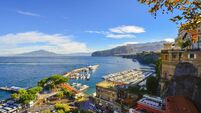Working for a better future for all in Malawi

The potholed track winds past huddles of thatched mud huts and squalid stalls selling withered vegetables and maize.
Small ragged boys herd goats, cyclists laden down with lengths of aluminium, mounds of sugar cane and bulging sacks wobble past our 4x4. Barefoot women, babies swaddled behind them trek forever homewards balancing water containers and heavy bundles on their heads.










